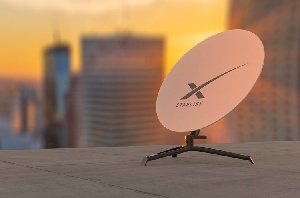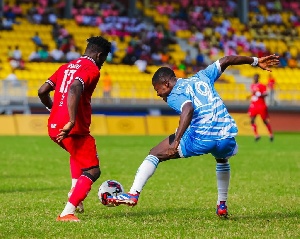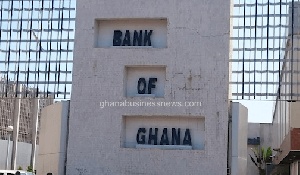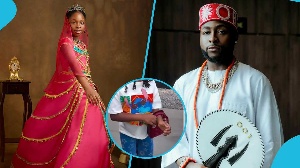- Home - News
- Elections 2024
- News Archive
- Crime & Punishment
- Politics
- Regional
- Editorial
- Health
- Ghanaians Abroad
- Tabloid
- Africa
- Religion
- Photo Archives
- Press Release
General News of Thursday, 17 April 2025
Source: www.ghanawebbers.com
Racially charged row between Musk and South Africa over Starlink
The conflict between Elon Musk and South Africa involves Starlink's launch issues. This dispute relates to the country's black empowerment laws. It may also contribute to tensions between the US and South Africa.
Musk claimed on X that Starlink cannot operate in South Africa because he is not black. However, the Independent Communications Authority of South Africa (Icasa) stated that Starlink never applied for a license. The foreign ministry said the company could operate if it complies with local laws.
To operate in South Africa, Starlink needs network and service licenses. These require 30% ownership by historically disadvantaged groups, mainly black South Africans. This law aims to address past injustices from apartheid, which ended in 1994.
Since then, the African National Congress (ANC) has prioritized "black empowerment" in its economic policies. Musk sees these requirements as obstacles for Starlink's operations in South Africa. In a submission to Icasa, Starlink argued that these provisions exclude many foreign operators.
However, foreign ministry spokesperson Clayson Monyela noted that over 600 US companies thrive under these laws. This includes major firms like Microsoft.
Communications Minister Solly Malatsi may support Musk's efforts. He belongs to the Democratic Alliance (DA), which criticizes current black empowerment laws for causing cronyism and corruption. Last October, Malatsi suggested finding ways around the 30% requirement.
He hinted at issuing a policy direction to clarify equity equivalent programs. This could mean Starlink wouldn't need a black partner but must invest in social programs benefiting black communities. Six months later, no changes have occurred as his legal team continues reviewing the matter.
Malatsi faces political resistance from ANC lawmakers like Khusela Diko. She warned him that transformation in tech is non-negotiable and compliance with laws is essential.
Relations between the US and South Africa have worsened recently. Musk criticized what he calls "racist ownership laws" on X while former President Trump threatened to boycott an upcoming G20 summit there.
Trump claimed there are serious issues regarding land confiscation affecting white farmers in South Africa. His comments about genocide against white farmers have been widely dismissed as false but echo Musk's sentiments.
Last month, Musk accused a major political party of promoting "white genocide." He linked this issue to his struggles with obtaining a license for Starlink by claiming it was due to his race.
Despite meeting President Cyril Ramaphosa last year, relations seem strained now. Ramaphosa described their meeting positively but noted nothing concrete had been established since then.
Starlink has faced challenges elsewhere in Africa too. Lesotho recently granted it a 10-year license after pressure from Trump's administration regarding tariffs on imports from Lesotho.
Some reports suggest this decision was influenced by tariff negotiations; however, Foreign Minister Lejone Mpotjoane denied any connection between them. Civil society group Section Two condemned granting the license due to concerns over local ownership requirements being ignored.
Starlink also seeks exemptions from local partnership rules in Namibia, where businesses must be 51% locally owned. The Communications Regulatory Authority of Namibia confirmed receiving an application from Starlink but awaits further decisions on ownership exemptions.
Currently, Starlink operates in over 20 African countries including Somalia and Nigeria—its first African market—where it has become a significant internet provider despite lacking presence in South Africa.
Many locals found ways to access its services through regional roaming packages until this practice was halted last year by Icasa warning against illegal provision of services.
With about 20% of South Africans lacking internet access—especially rural residents—a compromise could benefit both parties significantly.
President Ramaphosa appointed former deputy finance minister Mcebisi Jonas as special envoy to improve US relations amid ongoing tensions.
Jonas acknowledged past criticisms of Trump but emphasized rebuilding understanding is crucial for trade relations with America.
As Trump threatens tariffs on goods from South Africa, maintaining good relations becomes increasingly important for economic stability.











